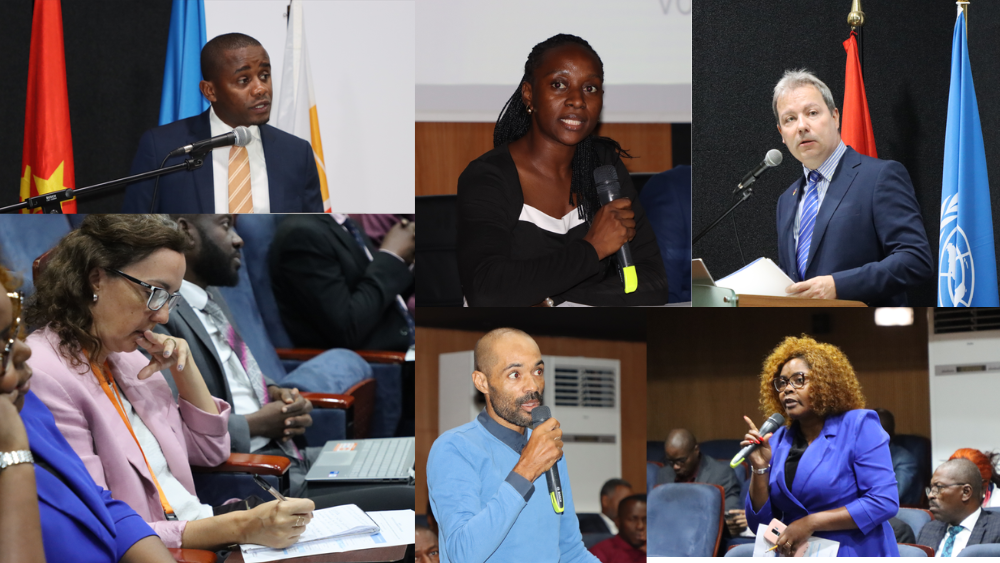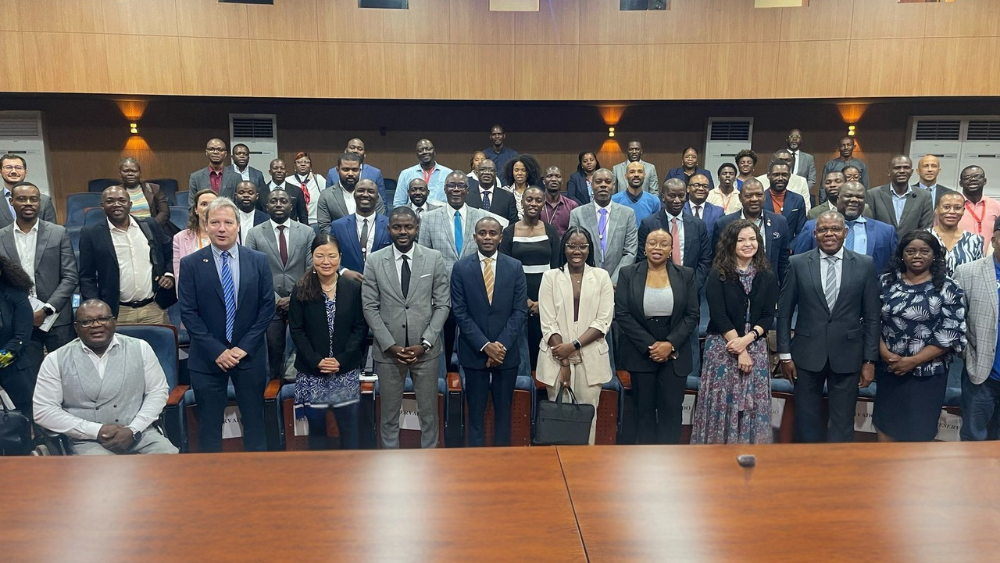The Auditorium of the National Institute of Statistics hosted on April 16th the Workshop on Monitoring the Implementation of the Sustainable Development Goals (SDGs), within the scope of the elaboration of the 2nd National Voluntary Report (NVR) led by the Ministry of Planning, with the support of the United Nations.
The event was organized by the Ministry of Planning and the Office of the Resident Coordinator of the United Nations, with the support of UNFPA and the active participation of other United Nations agencies, Academia, Private Sector, and Civil Society Organizations.
The workshop marks an important phase of final review and validation of the Report, which is a collective reflection on the country's progress and challenges towards fulfilling the 2030 Agenda.
The Senior Economist of the United Nations System in Angola, Dr. Andrea Antonelli, representing the Resident Coordinator, thanked the high level of national ownership of this report, promoting the active participation of various actors. In turn, the Secretary of State for Planning, Luís Epalanga, highlighted the importance of this second report for the government of Angola and reaffirmed its commitment to continue monitoring the SDG targets and sharing good practices with other countries.
The report used recent data from the IIMS 2023-2024, which showed improvements in some SDG indicators, for example, SDG 3 (Health and Well-Being), with a focus on the reduction of maternal mortality from 239 to 170 per 100,000 live births, reduction of infant mortality from 44 to 32 per 1,000 live births, and the fertility rate decreased from 6.2 to 4.8 per woman of reproductive age.
Despite the progress recorded in various domains, the participants recognized that challenges still persist for the fulfillment of other Sustainable Development Goals. It was reiterated, however, that the Report, to be presented at the United Nations High-Level Political Forum in New York in July, should reflect the reality of Angola in a transparent and faithful manner.
On the occasion, the Representative of UNFPA in Angola, Rinko Kinoshita, congratulated the work done and shared relevant contributions, highlighting the importance of disaggregating the data by province, age, sex and age group, financing mechanism, and social protection service coverage. She also emphasized the need to seek qualitative data to complement the quantitative data, to highlight the needs of vulnerable groups, such as the Report of the Public Consultation with People with Disabilities in 2024 (MASFAMU and UNFPA).





